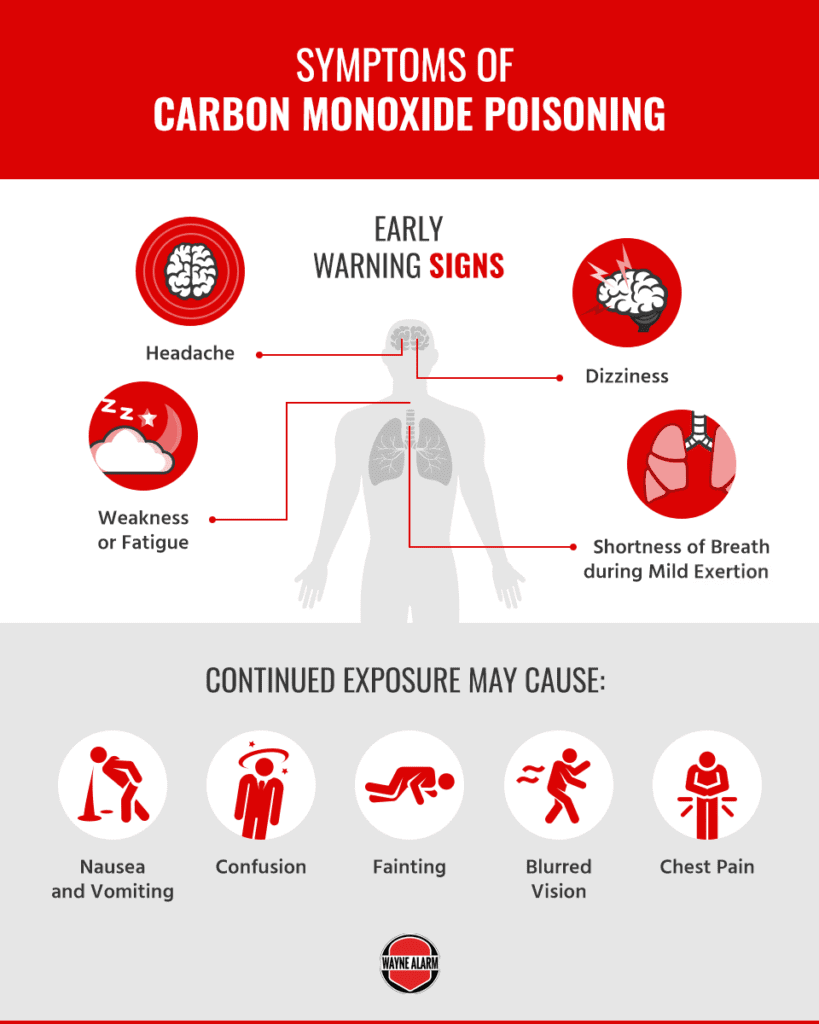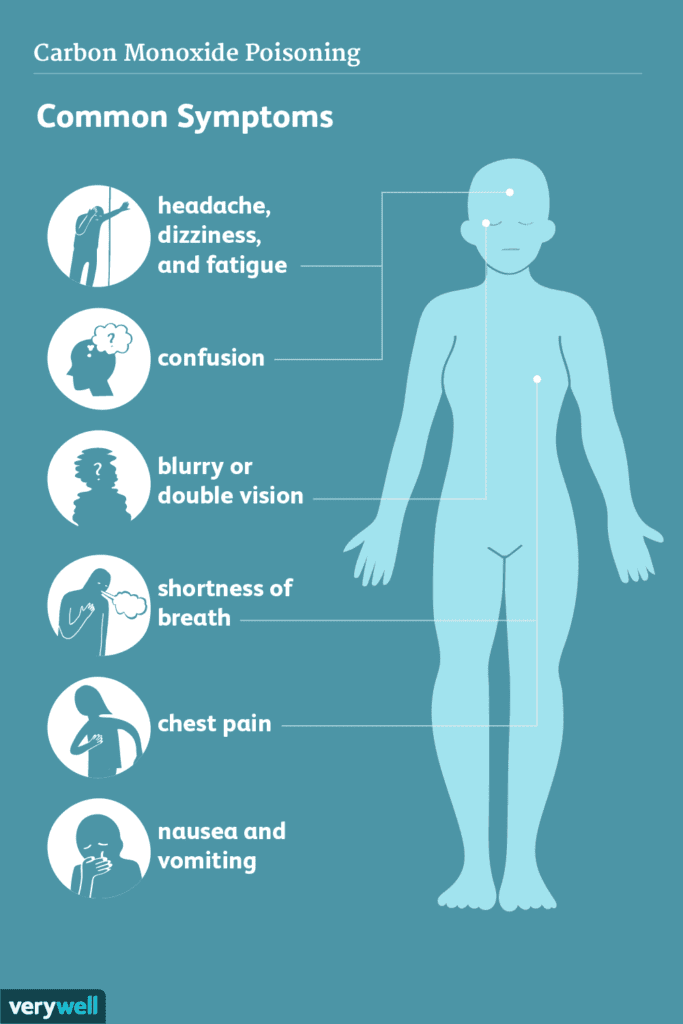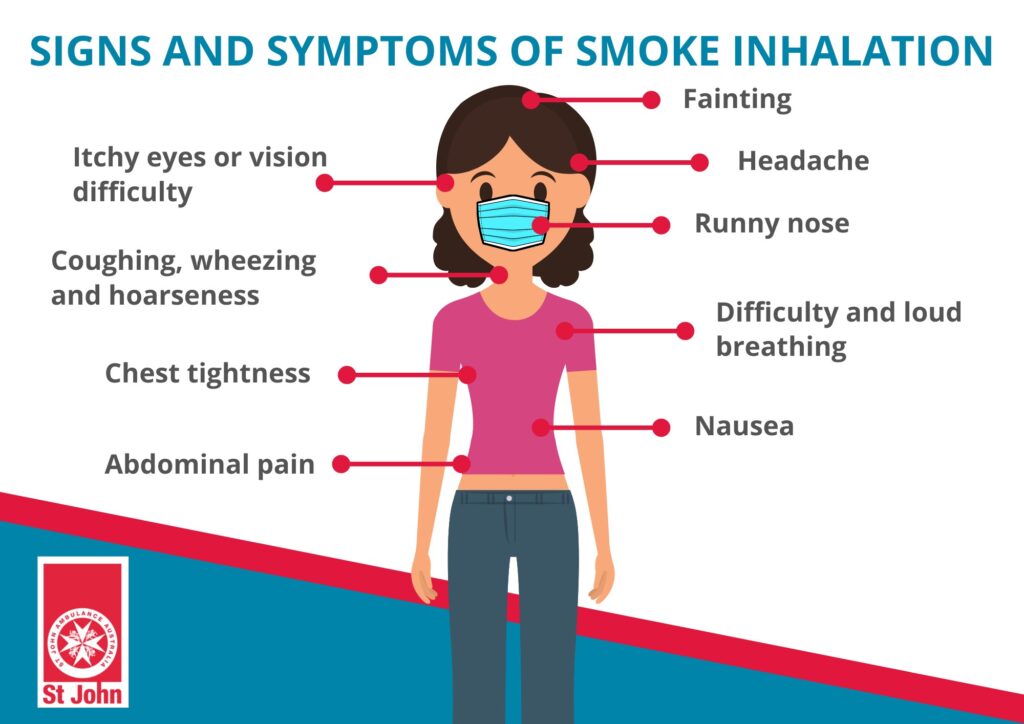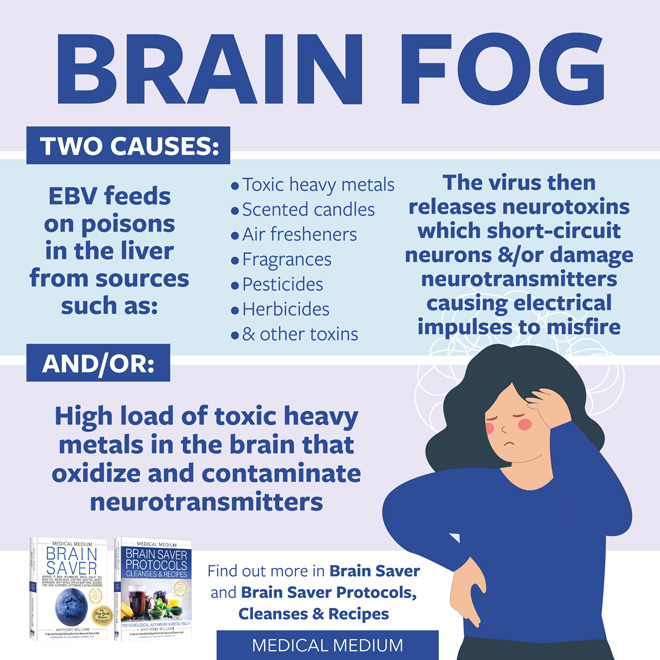When it comes to carbon monoxide poisoning, awareness is key. Knowing the warning signs can save lives. In this article, we will explore two essential indicators of carbon monoxide poisoning that everyone should be aware of. By understanding these warning signs, you can better protect yourself and your loved ones from this silent and potentially deadly threat. So let’s jump right in and learn more about the signs that could be a matter of life and death.
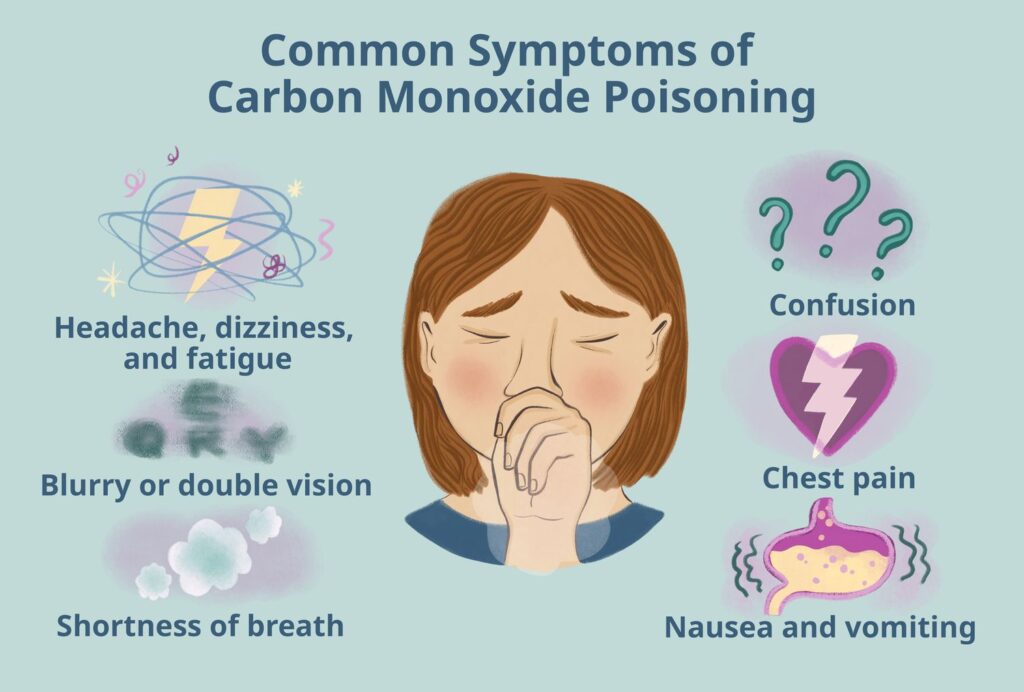

I. Physical symptoms of carbon monoxide poisoning
A. Headache
One common physical symptom of carbon monoxide (CO) poisoning is a headache. This headache may feel different from a regular headache, often described as more intense and persistent. It may also be accompanied by dizziness or other symptoms. If you experience a headache that seems to worsen indoors or in a specific location, it could be a sign of CO poisoning.
B. Dizziness
Feeling dizzy or lightheaded is another physical symptom that can indicate carbon monoxide poisoning. This symptom is often described as a sensation of spinning or feeling unsteady on your feet. It may occur suddenly and persist even when you change your position or move to a well-ventilated area. If you find yourself feeling dizzy without any apparent reason, it’s important to consider the possibility of CO poisoning.
C. Nausea
Nausea is another physical symptom that can be associated with carbon monoxide poisoning. If you experience persistent feelings of queasiness or an inclination to vomit without any other apparent cause, it’s crucial to consider the possibility of CO exposure. Nausea caused by CO poisoning may be accompanied by other symptoms such as headache or dizziness.
D. Fatigue
Experiencing unexplained fatigue or extreme tiredness can also be an indication of carbon monoxide poisoning. CO interferes with the blood’s ability to carry oxygen to the body’s tissues, resulting in a decreased supply of oxygen to your muscles and organs. This can leave you feeling excessively tired or lacking in energy, even after getting enough rest. If you find yourself consistently drained of energy for no apparent reason, CO poisoning should be considered as a potential cause.
E. Vomiting
Vomiting is a more severe physical symptom that can occur in severe cases of carbon monoxide poisoning. When the body detects high levels of CO, it attempts to rid itself of the toxin by inducing vomiting. If you experience episodes of vomiting for no apparent reason or in combination with other symptoms such as headache or dizziness, it’s essential to seek medical attention immediately.
F. Chest pain
Chest pain can be a concerning physical symptom associated with carbon monoxide poisoning. CO exposure can lead to the formation of carboxyhemoglobin, a compound that reduces the blood’s ability to carry oxygen. As a result, your heart may have to work harder to pump oxygen-rich blood throughout your body, causing chest pain or discomfort. If you experience unexplained chest pain, it’s important not to ignore it and consider the potential role of CO poisoning.
G. Confusion
One of the more alarming physical symptoms of carbon monoxide poisoning is confusion. As CO impairs the delivery of oxygen to the brain, it can disrupt normal cognitive function. Confusion may manifest as difficulty concentrating, feeling disoriented, or having trouble processing information. If you notice sudden changes in your ability to think clearly or if you feel mentally foggy, it’s crucial to take CO exposure into consideration.
H. Shortness of breath
Shortness of breath is another physical symptom that can occur in cases of severe carbon monoxide poisoning. This symptom is often a result of the reduced oxygen-carrying capacity of the blood due to high levels of carboxyhemoglobin. If you find yourself struggling to catch your breath or feeling breathless even with minimal exertion, it’s essential to seek immediate medical attention as it can be a sign of a potentially life-threatening condition.
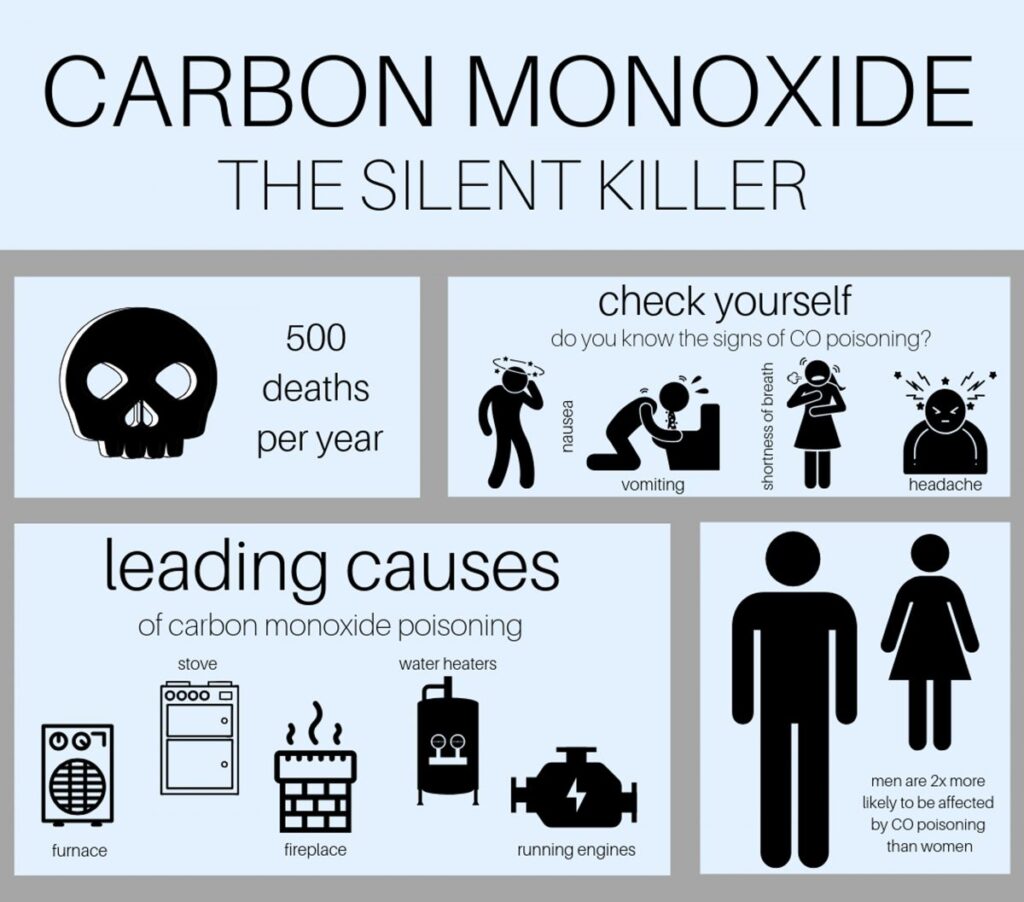

II. Behavioral warning signs of carbon monoxide poisoning
A. Mental confusion
Along with the physical symptoms, carbon monoxide poisoning can also manifest in behavioral warning signs. One of these warning signs is mental confusion. When CO levels rise, the brain can be deprived of oxygen, leading to impaired cognitive function. You may experience difficulty concentrating, have trouble remembering things, or feel mentally foggy. These changes in mental clarity should not be ignored and may warrant immediate medical attention.
B. Impaired judgment
Impaired judgment is another behavioral warning sign that can indicate carbon monoxide poisoning. Higher levels of CO in your bloodstream can affect your ability to make sound decisions and assess risks accurately. You may find yourself making poor choices or displaying a lack of judgment in situations where you would normally act appropriately. If you or someone around you is exhibiting impaired judgment without any apparent explanation, it’s important to consider CO poisoning as a potential cause.
C. Personality change
CO poisoning can also cause noticeable changes in your personality. You or those around you may observe uncharacteristic shifts in behavior, mood, or attitude. These changes can range from increased irritability or agitation to sudden shifts in temperament or general personality traits. If you or someone you know experiences significant and unexplained shifts in behavior or personality, it’s essential to consider the possibility of CO poisoning.
D. Irritability
Feeling unusually irritable or easily angered can be another behavioral warning sign of carbon monoxide poisoning. The lack of oxygen reaching the brain due to CO exposure can contribute to irritability and a shorter fuse. If you notice a sudden and significant change in your overall temperament or find yourself becoming extremely easily irritated, it’s important to consider the potential role of CO poisoning.
E. Difficulty concentrating and remembering
CO poisoning can impair cognitive functions such as concentration and memory. If you find yourself struggling to focus or experiencing difficulty remembering things, it could be a result of CO exposure. These changes may appear suddenly and persist despite efforts to improve concentration or memory. If these difficulties arise without any other apparent cause, it’s important to consider CO poisoning as a potential factor.
F. Hallucinations
In severe cases of carbon monoxide poisoning, hallucinations may occur. These hallucinations can involve seeing, hearing, or perceiving things that are not present or real. Hallucinations can be extremely distressing and indicate a critical level of CO exposure. If you or someone you know experiences hallucinations, it’s crucial to seek immediate medical attention.
G. Loss of consciousness
Loss of consciousness is one of the most severe behavioral warning signs of carbon monoxide poisoning. It occurs when there is a significant buildup of CO in the bloodstream, leading to oxygen deprivation to the brain. Loss of consciousness should never be taken lightly and requires immediate medical intervention. If you witness someone losing consciousness or find yourself losing consciousness due to an unexplained cause, call emergency services right away.
Remember, carbon monoxide is a silent killer. It is colorless, odorless, and tasteless, making it difficult to detect without the proper equipment. If you experience any of the physical symptoms or notice any behavioral warning signs discussed in this article, it’s essential to prioritize your safety and seek medical attention. Installing carbon monoxide detectors in your home and practicing regular maintenance of gas-powered appliances are important preventative measures to safeguard against CO poisoning. Stay informed, stay vigilant, and protect yourself and your loved ones from the dangers of carbon monoxide.
